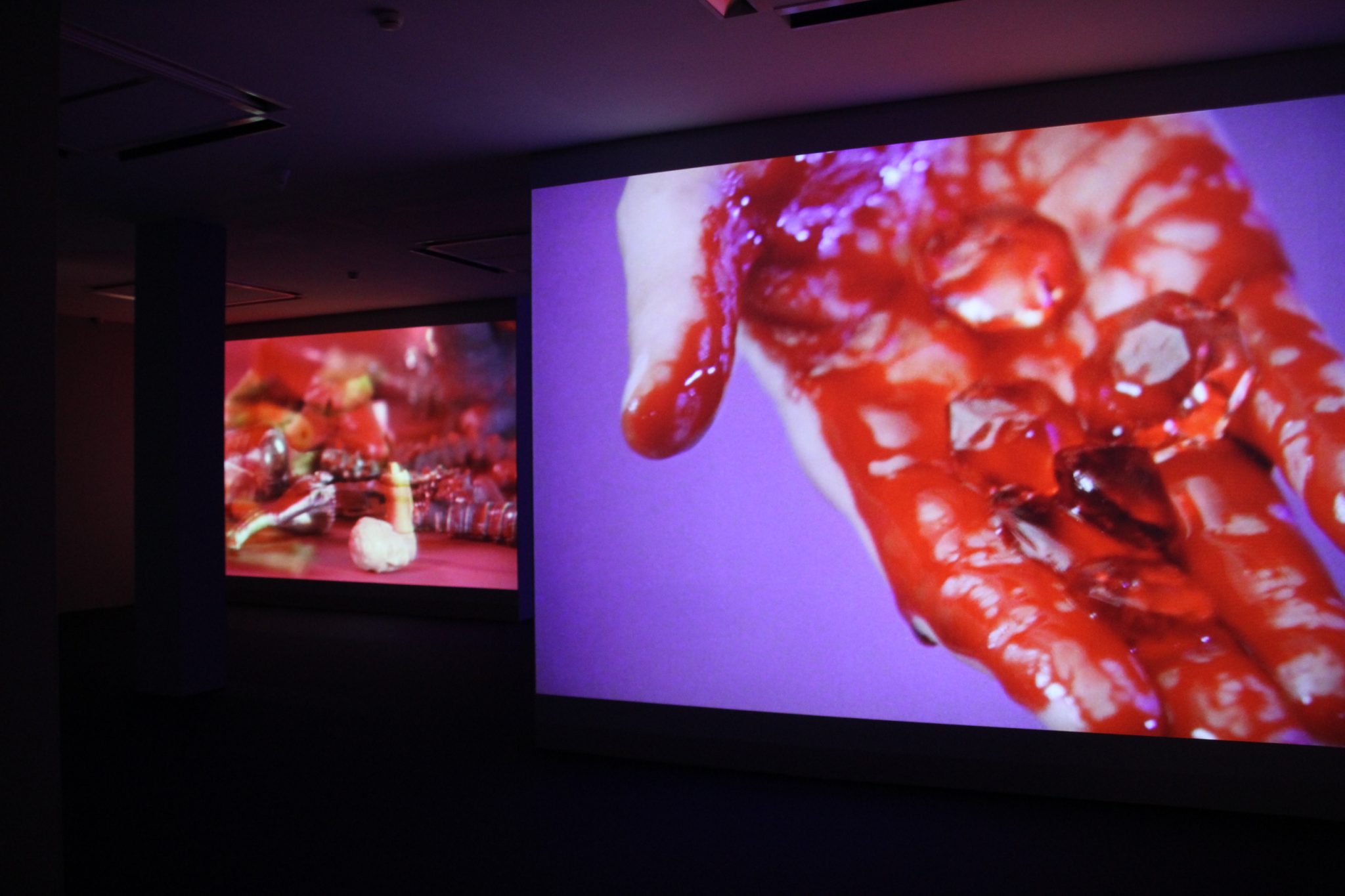Past exhibition
Isabelle Cornaro. Sunset
28.08.2021 – 14.11.2021
Isabelle Cornaro works with painting, sculpture, film and installation to explore the influence of history and culture on our perception of reality. Trained as an art historian specializing in 16th century European Mannerism, her visual language draws from a wide range of references from the Baroque to modernist abstraction. Her installation Paysage avec Poussin et témoins oculaires (Landscape with Poussin and Eyewitnesses, 2008), in which she paraphrased the ideal landscapes of the classicist Baroque painter Nicolas Poussin (1594-1665) and explored the relationship between landscape, painting, and sculpture in a distinctive style with a cleverly balanced mix of cheap materials and valuable collectibles, won wide acclaim. In much of her work, Cornaro uses found objects imbued with symbolic potential or emotional value, which she presents in a variety of representational forms and media to reveal the subtle shifts in meaning brought about by processes of reproduction and translation.
Borrowed from domestic, decorative, or functional contexts, these artifacts are often associated with Western culture as a means of power. Their combination and arrangement in the artist’s work invites the viewer to question the relationships between systems of representation and our understanding of the world. Abstracted and transformed with heightened artifice, the staged compositions perform a status shift from instinctively chosen categories such as precious, sacred, or personal into an unfamiliar space with unnatural excess of surreal colors and strong-hued emulsions. In denaturalizing the relationship to the familiar, these objects are offered to intense observation for contemplation, yet at the same time distanced and stripped of their meaning. However, she is also concerned with painting itself, which she formulates in a distanced and unrepresentative way. In her videos, on the other hand, she often thematizes everyday objects/ to which she gives special attention – also on the part of the viewer – by focusing on them in the film. In doing so, she uses the mechanics of film to question traditional patterns of representation and instead accentuate the materiality of objects or body parts, pushing the degree of detachment and alienation.
Isabelle Cornaro (b. 1974, France) lives and works in Paris and Zurich. She studied at the École du Louvre and the École Nationale Supérieure des Beaux-Arts de Paris. She has exhibited both in France and internationally, including solo exhibitions at M – Museum, Leuven; Hannah Hoffman Gallery, Los Angeles; Kunsthalle Bern, Bern; Le Magasin, Grenoble; Frac Aquitaine, Bordeaux; Collège des Bernardins, Paris as well as participating in numerous international group exhibitions.
For the fall of 2021, Isabelle Cornaro has been nominated for the Prix Marcel Duchamps with three other French artists*. Her exhibition at the Ludwig Museum in Koblenz is also her first presentation in Germany.
The exhibition is produced in collaboration with the artist, the Musée de l’Orangerie and the Fondation Ricard, Paris. It is sponsored by the Peter and Irene Ludwig Foundation.
A comprehensive catalog will accompany the exhibition.
Hier geht es zum Radiobeitrag zur Ausstellug von Isabelle Cornaro – Sunset von SWR 2.
Isabelle Cornaro is nominated for the Prix Marcel Duchamp 2021

Isabelle Cornaro: Raumstill mit den Filmen Subterranean (Unterirdisch) und Accumulation (Anhäufung), 2017, 16mm-Film übertragen auf Digitalfilm, Farbe, Stumm, 16:9, 1:21 Minute, Kamera: Guillaume Gibout, Farbkorrektur: Alexandre Westphal, Models: Cécile Bouffard, Isabelle Cornaro
